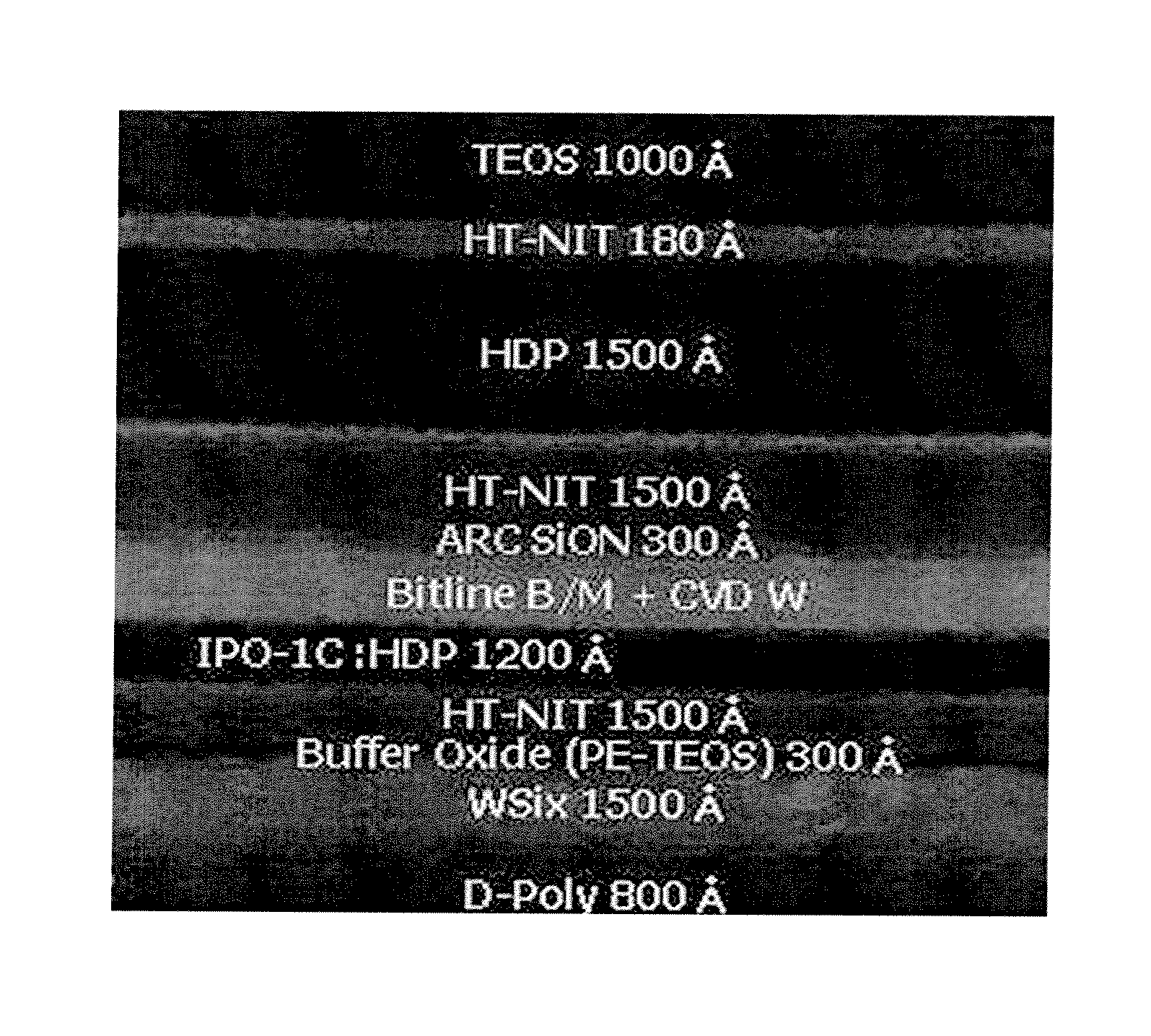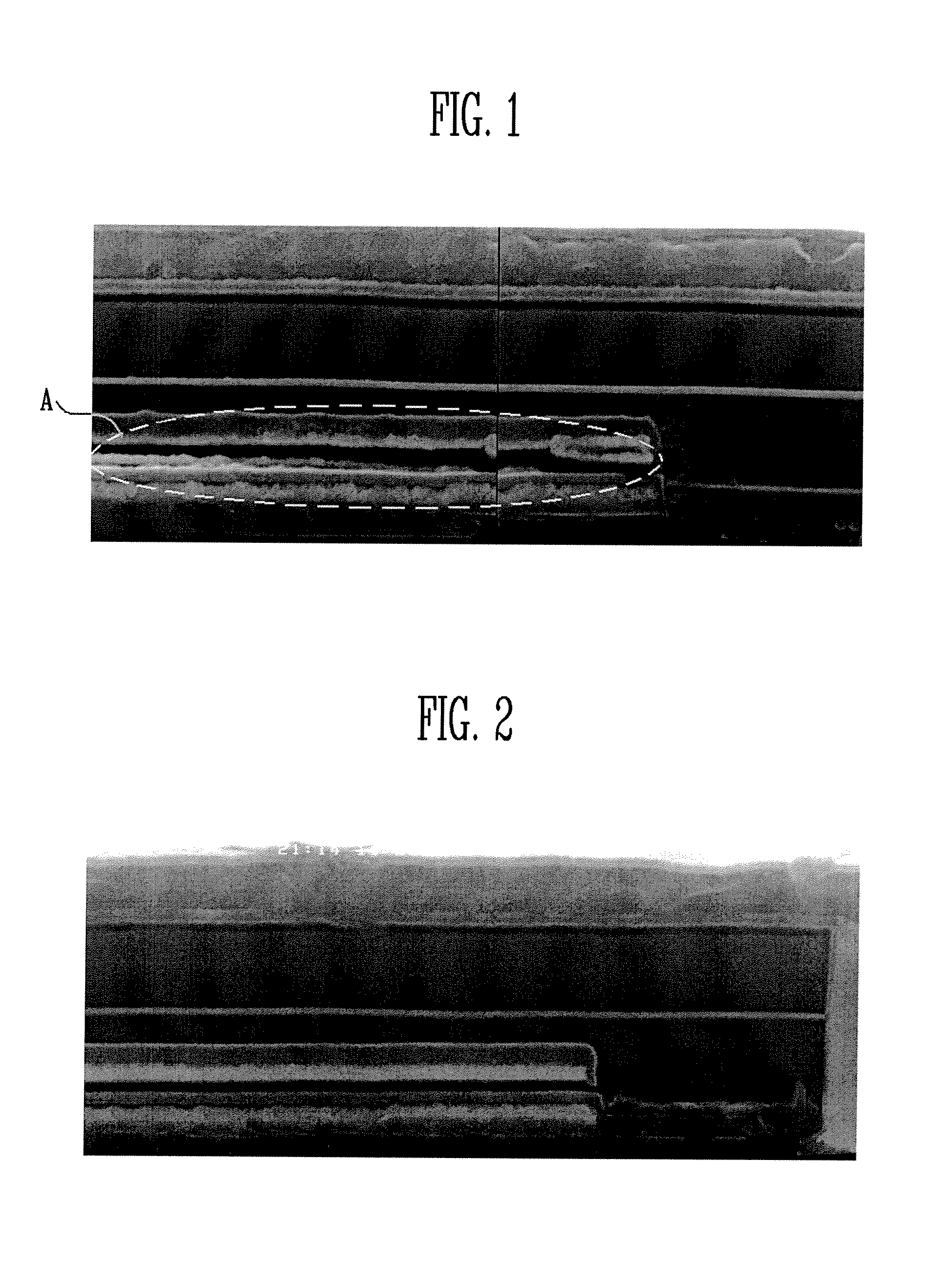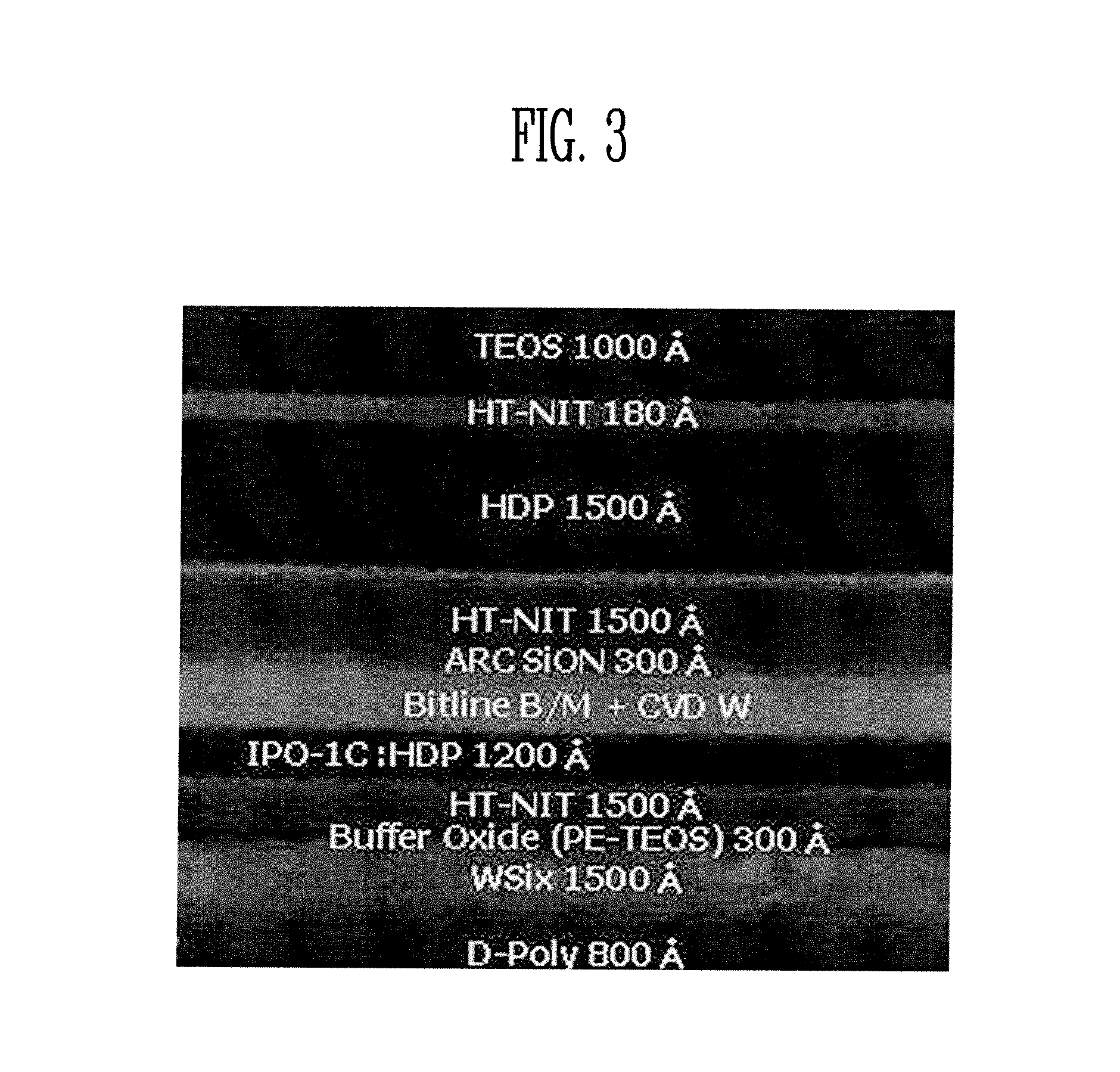Method for Fabricating Semiconductor Device
a semiconductor device and manufacturing method technology, applied in the direction of semiconductor devices, basic electric elements, electrical appliances, etc., can solve the problems of increasing the number of steps, limiting the step of fabricating a semiconductor device having a minute line width equal or less than 60 nm, and affecting the use of pvd tungsten
- Summary
- Abstract
- Description
- Claims
- Application Information
AI Technical Summary
Benefits of technology
Problems solved by technology
Method used
Image
Examples
embodiment 1
[0032]An amorphous carbon film having a compression stress is formed. Typically, the amorphous carbon film has a tensile stress of about 90 MPa at a forming temperature of 550° C. Here, when the amorphous carbon film is formed at below this temperature, preferably, 100° C.-400° C., the amorphous carbon film has a compression stress. For example, the amorphous carbon film is formed at 300° C., it has a tensile stress of about 330 MPa.
[0033]Accordingly, when an amorphous carbon film is formed over the etched layer, the amorphous carbon film is formed at a range of 100° C. to 400° C. and thus a lifting phenomenon on a stacked layer can be prevented. The following Table 3 shows stresses and stress concentration factors on a CVD tungsten film and an amorphous carbon film formed at 300° C., respectively, and a stress concentration factor on stacked layers formed by stacking them.
TABLE 3FilmThickness (Å)Stress (dyn / cm2)Kc (MPa / m0.5)Amorphous carbon2000−3.30e+09−0.215filmCVD tungsten film80...
embodiment 2
[0035]To reduce a tensile stress on an etched layer, a heat treatment process against the etched layer is performed. The heat treatment process for reducing a tensile stress on the etched layer is performed under an argon atmosphere at 300° C. to 500° C. for 0.5 hours to two hours, or under argon atmosphere at 300° C.-500° C. for one minute to 20 minutes through a Rapid Thermal Annealing process.
embodiment 3
[0036]A film having a compression stress is formed between a stacked layer of an etched layer and an amorphous carbon film. The film having a compression stress includes a Plasma Enhanced nitride film, an oxide film, SiON film and a strontium oxide film (SrOx), etc. The following Table 4 shows stresses and stress concentration factors on a CVD tungsten film, an amorphous carbon film, and a PE nitride film respectively, and a stress concentration factor on stacked layers formed by stacking the PE nitride film between the CVD tungsten film and the amorphous carbon film.
TABLE 4FilmThickness (Å)Stress (dyn / cm2)Kc (MPa / m0.5)Amorphous carbon20009.00e+080.059filmPE nitride film300−2.60+09−0.066CVD tungsten film800 1.5e+100.619Total Kc on the Stacked layer0.338
[0037]Referring to Table 4, the stress concentration factor on the stacked layer is 0.038 MPa / m0.5, and thus a lifting phenomenon does not occur.
[0038]According to the method for fabricating a semiconductor device of the invention, wh...
PUM
| Property | Measurement | Unit |
|---|---|---|
| width | aaaaa | aaaaa |
| width | aaaaa | aaaaa |
| tensile stresses | aaaaa | aaaaa |
Abstract
Description
Claims
Application Information
 Login to View More
Login to View More - R&D
- Intellectual Property
- Life Sciences
- Materials
- Tech Scout
- Unparalleled Data Quality
- Higher Quality Content
- 60% Fewer Hallucinations
Browse by: Latest US Patents, China's latest patents, Technical Efficacy Thesaurus, Application Domain, Technology Topic, Popular Technical Reports.
© 2025 PatSnap. All rights reserved.Legal|Privacy policy|Modern Slavery Act Transparency Statement|Sitemap|About US| Contact US: help@patsnap.com



